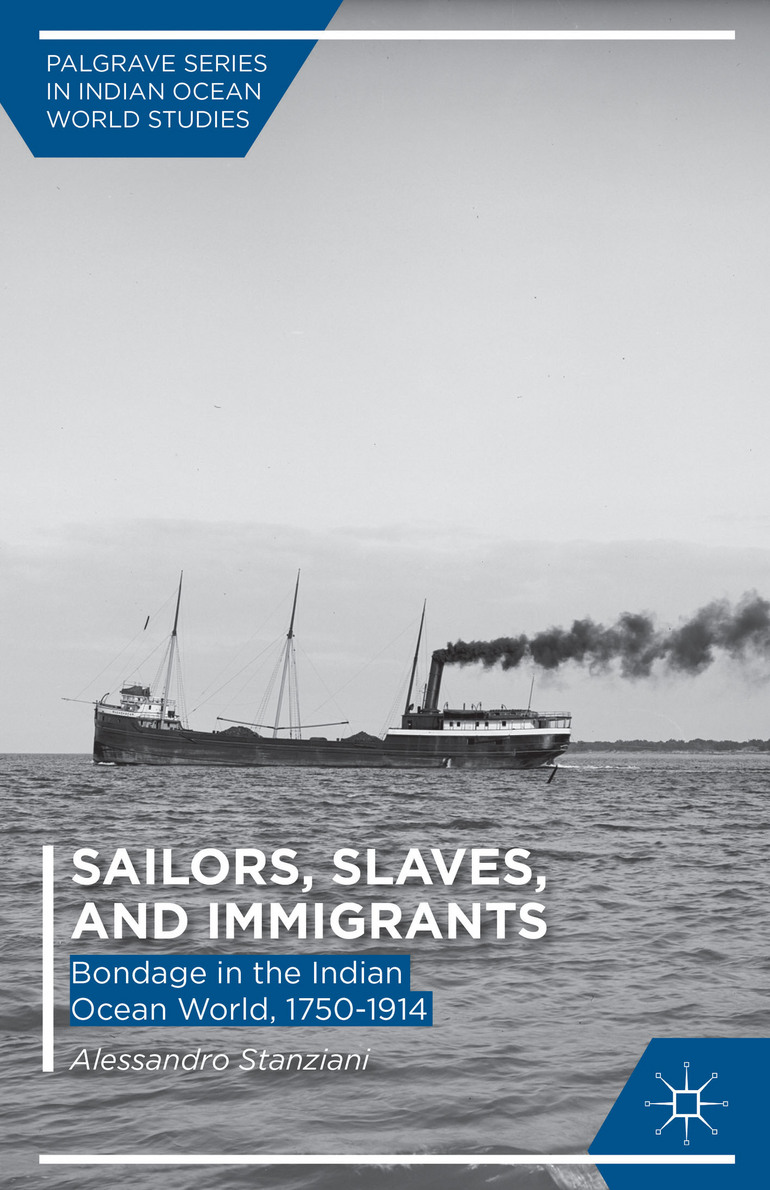Accueil > Actualités ultramarines > Vient de paraître : Sailors, Slaves, and Immigrants. Bondage in the Indian (...)
Vient de paraître : Sailors, Slaves, and Immigrants. Bondage in the Indian Ocean World, 1750-1914 de Alessandro Stanziani
Le 11 novembre 2014 à 14h52
Vient de paraître : Sailors, Slaves, and Immigrants. Bondage in the Indian Ocean World, 1750-1914 de Alessandro Stanziani, aux éditions Palgrave Macmillan, 2014, "Palgrave Series in Indian Ocean World Studies", 196 p. ISBN : 9781137448453 Prix : 76,11 € (existe aussi en version numérique pdf, kindle, epub).
"Slaves, convicts, indentured immigrants, and unfree seamen have traveled the world’s oceans at many times and places throughout human history. Across the Atlantic, Mediterranean, Indian, and Pacific Oceans, this bondage took divergent forms and exhibited a range of historical dynamics. In spite of this variety, the conventional Atlantic World historical paradigm has largely shaped our understanding of modernity as being defined by exploration and discovery, European dominance, global capitalism, and the transition from slavery to free labor. Not only does this perspective evince a Eurocentric emphasis on the ’uniqueness’ of the West, but it is increasingly contested even for the Atlantic itself. This provocative study contrasts the romantic conflation of freedom and the sea with the complex labor relationships of seamen, slaves, and immigrants in the Indian Ocean during the long nineteenth century. In the process, it advances a new framework for understanding labor, bondage, and modernization."
Contents :
1. Colonial Studies, Area Studies, and the Historical Meaning of the Indian Ocean
2. Seamen in France and the French Empire : Heirs to the Galley Slave or Forerunners of the Social Security System ?
3. Sailors in the British Empire
4. Slaveries and Emancipation
5. Immigrants and Planters in the Reunion Island
6. From British Servants to Indentured Immigrants : The Case of Mauritius
Alessandro Stanziani est Directeur d’études EHESS et Directeur de recherche CNRS (CRH)


